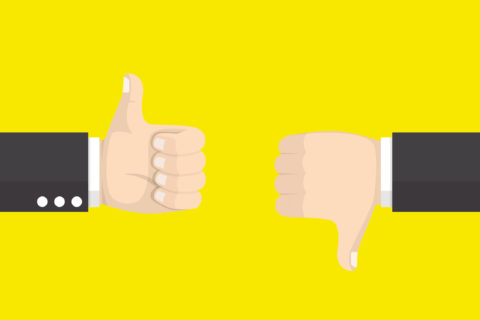It isn’t just fake news.
There are now multiple examples of fake polls — not just limited to one country, but in several places throughout the world.
— ESOMAR and SAVA (the Slovakian insights association) earlier this year issued a press release about Media T polling: http://www.eglobaltravelmedia.com.au/esomar-and-sava-raise-questions-about-media-t-polling/
This was the second time in two years ESOMAR was forced to go public with a “fake poll” charge against this organization, which has no website or apparent physical location, but simply published fake polls on Facebook!
— In France, there is recent a fake poll created using the name, logo and a graphic citing a prominent French polling company; https://www.20minutes.fr/municipales/2618499-20191002-municipales-2020-colmar-faux-sondage-seme-zizanie-avant-elections
— Last week in Sri Lanka, Kantar was cited on social media as having conducted a poll there — which they never did!
http://www.mrweb.com/drno/news28907.htm
— And recently in the UK, there has been a purposeful misrepresentation of poll findings (even the exclusion of certain results), by the Liberal Democrats, in order to try and bolster their position:
https://www.bristolpost.co.uk/news/bristol-news/banes-liberal-democrats-graph-tweet-3492186
https://www.theguardian.com/politics/2019/nov/16/lib-dems-criticised-for-selective-use-of-polling-data-on-leaflets
That’s four known examples in less than a year. Is it the beginning of an epidemic of fake polls?
We don’t know yet. But social media may be making the presentation of fake polls easier, as the rules and guidelines legacy media organizations have developed for reporting polls may not be followed by individuals posting to social media. Faking graphics and copying logos is easy, and we now also regularly see country leaders using social media channels to criticise and dismiss non-favourable findings…and claim that they are the only ones with the “real” poll results
Thankfully, we CAN protect ourselves and others from them and the damage they can do to democracy.
Here are a few suggestions for what to do when you suspect a poll is fake:
- Does the report tell you what you need to know about any poll: who did the poll and who paid for it, when was it conducted, how it was conducted, how many respondents did it have, and what questions did it ask? Fake poll reports may not include all this information. Check the ESOMAR FAQs on polling for more useful questions to ask: https://www.esomar.org/uploads/public/knowledge-and-standards/documents/ESOMAR-FAQs-on-opinion-and-election-polls.pdf
- Check the website of the named polling company. Is there a website? If the polling company has a website, does it contain a report of the poll? If it doesn’t — or if there is no website — you should be very skeptical of the report. Even if the alleged company’s name sounds scientific, it may be not scientific and not real.
- Is the named polling company an ESOMAR member? If they are, that is a positive sign. ESOMAR members have promised to abide by the ESOMAR/ICC code, and is subject to censure if it does not. But if it is not a member, and has not provided the necessary information so that you can judge poll quality, be very skeptical.
- Is the named polling company a member of an equivalent organisation?
There are many other organisations that insist upon strict reporting standards, such as: World Association for Public Opinion Research (wapor.org) or ISO certification, MRS (UK), SYNTEC (France), etc etc. - Finally, read the story, compare with other polls (though new results or trends are possible when a survey is taken after a major event), and read the questions to make sure the questionnaire is professional, with no biased question or reporting; check the relevancy of the target audience. Check to see there are no suspicious comments on the survey results or over-interpretation of data.
Finally, be confident that you can identify a fake poll. For additional assistance, ESOMAR can, and would be delighted to, help. And we want to know about polls that could be fake, so we can warn other members!



1 comment
Thanks Finn and Kathy for this article on a growing concern!
We have 5 tips to differentiate the true and fake polls, instead of our 3 principles in the first article https://archive.researchworld.com/this-is-not-a-poll/. I hope that we will not have to change for 10 points the next time…